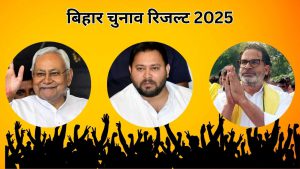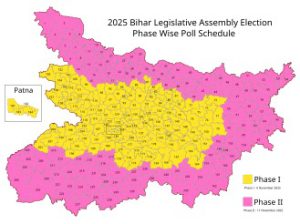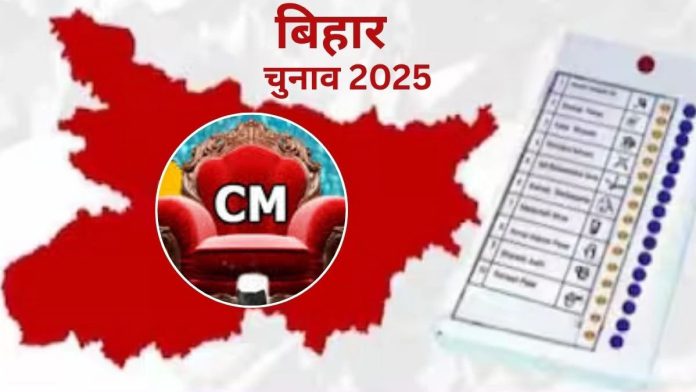A deep look at how the Whiplash of Bihar’s 2025 politics reshaped alliances, voter behaviour, and electoral outcomes—highlighting the rise of NDA and the collapse of the Grand Alliance.
By Dr. Mohammad Farooque | Qalam Times News Network
Kolkata, 14 November 2025
Whiplash of Politics and the Mandate
Whiplash—that’s the word that sums up Bihar’s 2025 electoral storm. The state once again turned into a battleground of shifting loyalties, and the National Democratic Alliance didn’t just outperform expectations—it bulldozed them. Securing 122 seats was merely the starting line; by the time this analysis was written, the NDA had surged to a commanding lead on 208 seats. This is their strongest performance since 2010, a moment etched into Bihar’s political history.
Grand Alliance in Disarray

The same Whiplash hit the Grand Alliance with brutal force. Rahul Gandhi’s outcry over “vote theft,” Tejashwi Yadav’s promises of jobs, and the intense campaign machinery couldn’t translate enthusiasm into votes. Rallies drew crowds, slogans echoed loudly, but voters stayed home on polling day.
RJD’s traditional cadre couldn’t produce the expected “magic,” while Congress proved once more that contesting elections without an on-ground structure is tantamount to political suicide. Once considered strong in Seemanchal, Kosi and West Bihar, the Grand Alliance couldn’t even cross the 100-seat mark—its strategy collapsed under weak leadership and a refusal to face ground realities.
Why the NDA Wave Worked
NDA’s sweeping success didn’t come from one source—it was a blend. Central government welfare schemes, generous budgetary allocations for Bihar, Nitish Kumar’s reputation for governance, and targeted financial packages for women shaped a powerful narrative.
Even though BJP’s state leadership looked sluggish, the aggressive campaigning of Narendra Modi and Amit Shah stamped their imprint across Bihar’s political landscape.
AIMIM and the Split in Minority Votes
Asaduddin Owaisi’s AIMIM added another twist to the story. By splitting minority votes, especially in Seemanchal—where Muslims make up over 40%—the party gained or led on nine seats. Call it an explosive debut or a reflection of Muslim political frustration, one thing is clear: secular parties failed to consolidate minority votes.
Repeated appeals to include AIMIM in the Grand Alliance were brushed aside over “polarization fears,” and that decision cost the secular bloc dearly.
The Prashant Kishor Experiment Falls Flat

Prashant Kishor’s Jan Suraaj Party, despite loud social-media buzz, couldn’t break through. With 243 candidates in the fray, not one seat materialized. Their appeal to youth, migrant workers, and unemployed voters ended up as nothing more than slogans in the wind. At most, they dented some urban and young voters from the Grand Alliance—but they couldn’t shake the core political structure of the state.
For an election strategist once seen as the mastermind behind Modi and Nitish’s victories, this was a humbling return to political reality.
The Old Lesson Returns
In the end, Bihar’s 2025 election revives an old truth: politics isn’t changed by slogans—it’s changed by groundwork. Organization matters. Cadre matters. Real connection with voters matters.
Whether it’s minority trust or the hopes of the youth, no party can win unless it earns that confidence. NDA won because its machine worked; the Grand Alliance didn’t because its foundation was hollow.
In Bihar, Whiplash is real—and the people’s expectations always strike back.







